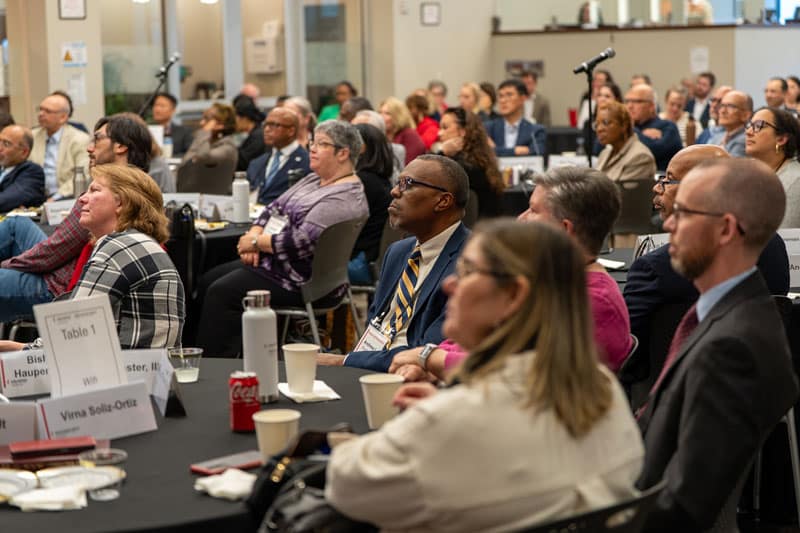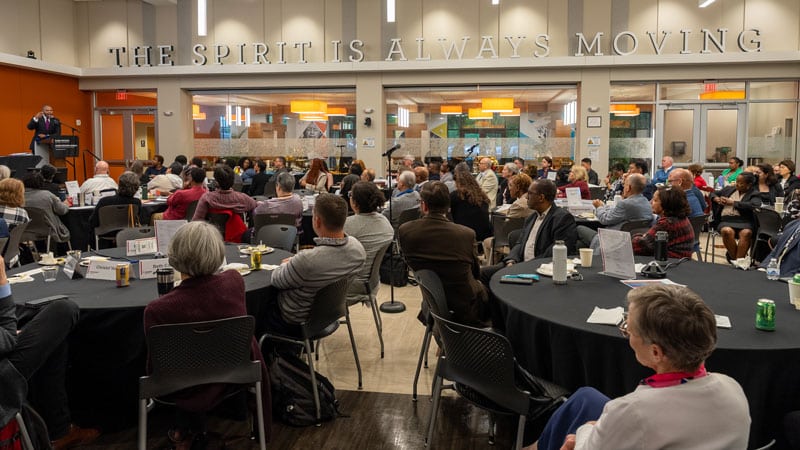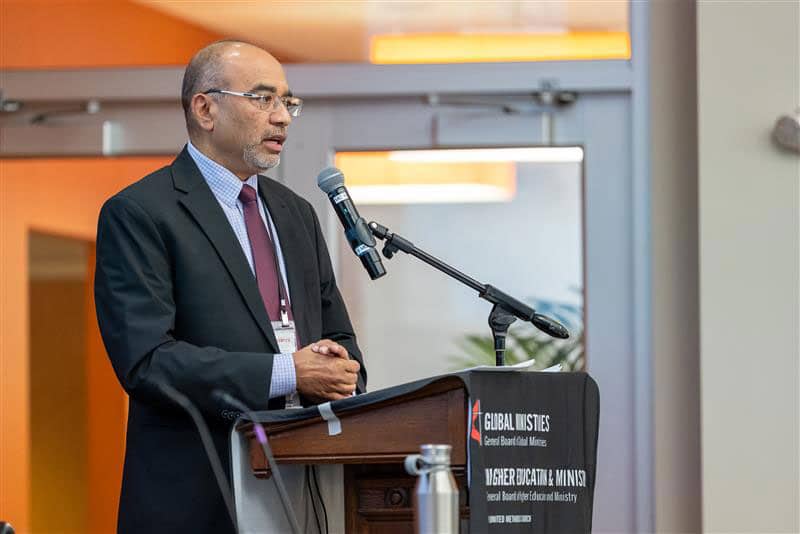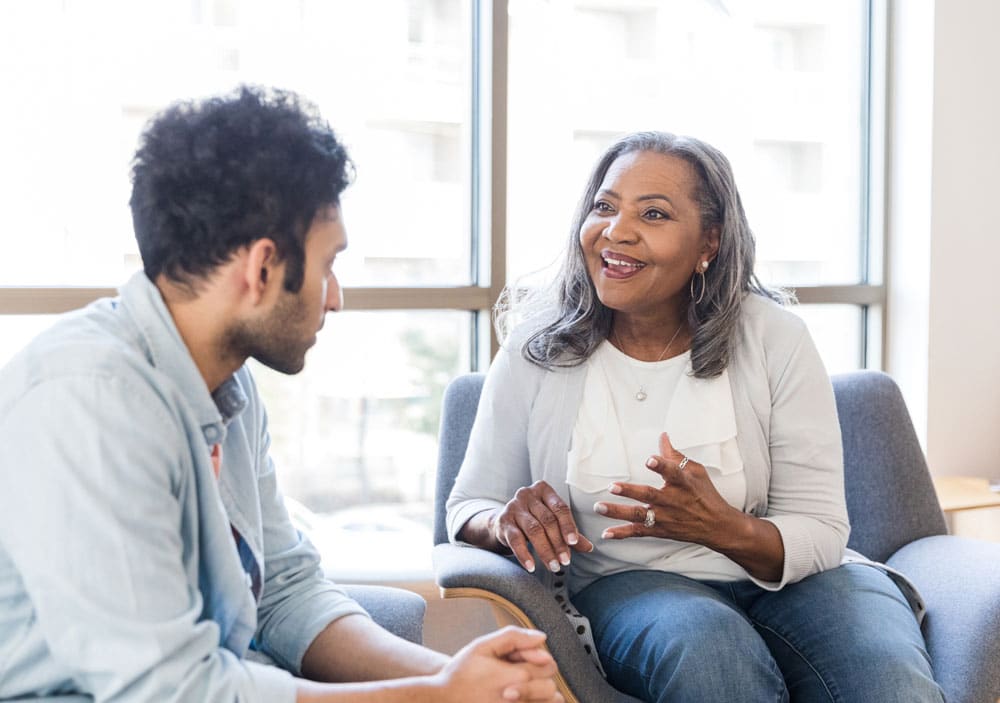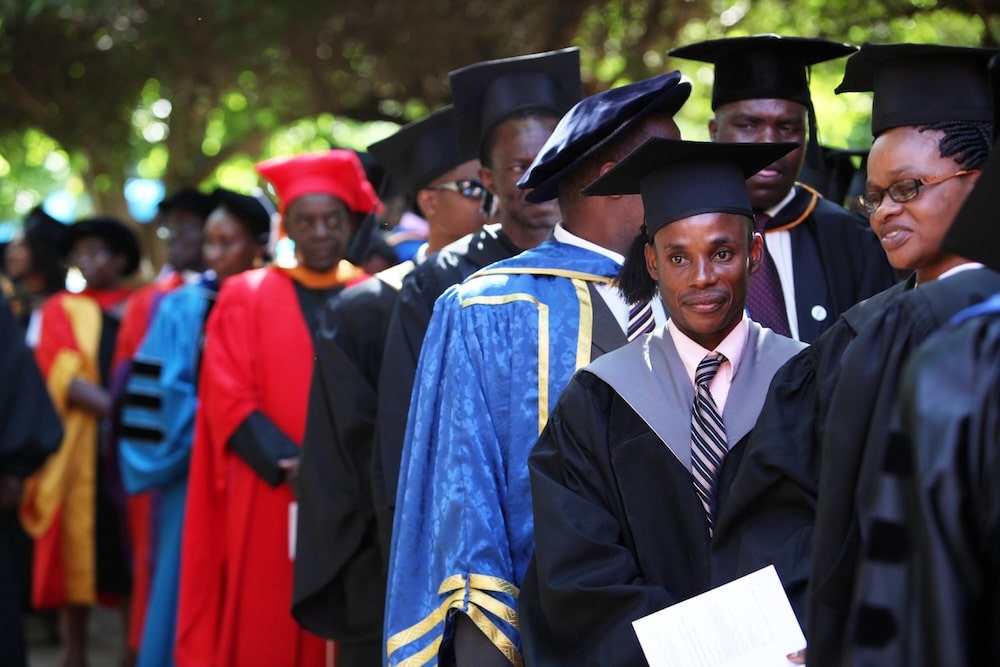Women of Color Scholars’ Series: Bonilla Closes Gaps in Seminary Education
By Jessica Love
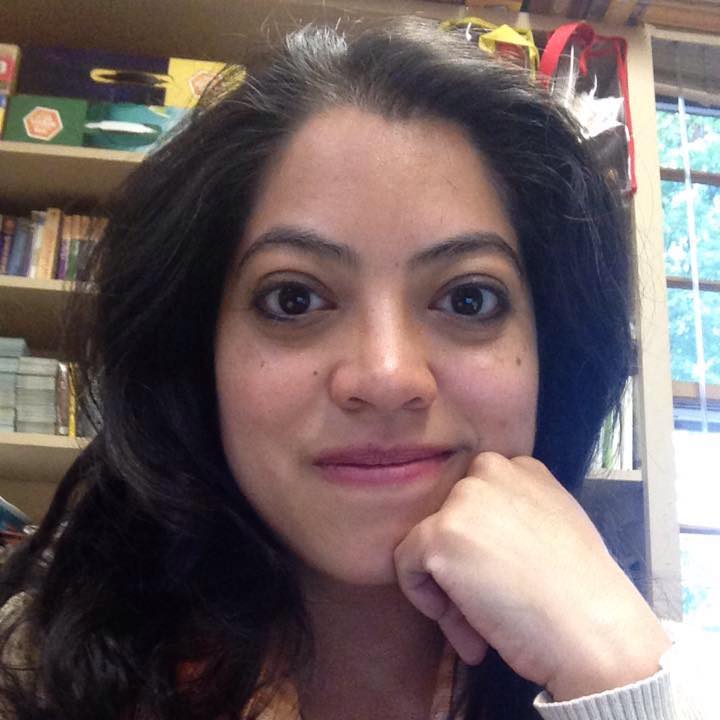
Rev. Patricia Bonilla learned at an early age how important it is to see color and acknowledge differences.
“In high school, I was one of two Mexican students in my whole grade,” she said.
Now Bonilla, who is an ordained deacon in the Northern Illinois Conference, is researching and celebrating those differences as part of a new generation of Angella P. Current-Felder Women of Color (WOC) Scholars. She is in her third year of doctoral studies at Garrett-Evangelical Theological Seminary in Evanston, Illinois.
The Angella P. Current-Felder Women of Color (WOC) Scholars program is administered by the General Board of Higher Education and Ministry (GBHEM), and is designed to provide financial, intellectual and personal support to United Methodist women of color pursuing doctorates in religious studies at seminaries and universities across the U.S.
When she was in middle school, Bonilla’s family moved from a working-class immigrant community to Vernon Hills, Illinois and opened a grocery store in the wealthy Chicago suburb.
Bonilla noticed that while other students had the weekends off to play sports and engage in fun activities, she worked at her family’s grocery store.
“We were a working-class family living in a middle-class neighborhood,” said Bonilla. “So, everybody in the family had to work. I didn’t have the money for after-school activities or the opportunity to go.”
It was a culture shock for her.
“It was tough doing that shift—especially after doing most of my younger education in a predominately Mexican and immigrant community,” she said. “So, that’s when I realized that things were not the same everywhere in the U.S.”
Finding the Intersection of Faith and Social Justice
Bonilla’s childhood experiences made her accustomed to acknowledging difference. When she later became interested in religion, she explored various interfaith communities as an undergraduate before defining her own faith.
“I joined the student Muslim association as an ally of Muslim students,” Bonilla said. “I was also taking Buddhist classes as well as attending Catholic Church. I was interested in interfaith experiences.”
But it was not until she graduated and started attending a United Methodist Church that Bonilla began to feel connected to a faith practice.
As a community organizer working for immigrant communities in Chicago, Bonilla said she kept bumping into United Methodist clergy who talked about how their work was grounded in faith. That fellowship allowed Bonilla to discover her call to ministry.
“I got invited to participate in the United Methodist Church,” Bonilla explained. “I used to go to Bible studies, do justice ministry and explore what justice ministry meant from a faith perspective. That’s really where my intersection of being drawn to social justice work met my interest in faith.”
“Feeling Like I Don’t Belong”
Bonilla continues her justice ministry as a religious education and congregational doctoral student at Garrett-Evangelical Theological Seminary. Yet, navigating higher education as a woman of color has been difficult.
Bonilla admits that because of her minority experience in the academy, she battles challenges of imposter syndrome.
“Sometimes I feel that the academic structure is not made for me, that it doesn’t engage the ecologies of knowledge that I have been raised in,” said Bonilla. “Sometimes, I feel like I don’t belong and that I don’t have the right stuff to contribute to the academy. So, I overcome those challenges by affirming that I do have something to contribute and that western-Eurocentric knowledge is not the only knowledge that is valued.”
The other essential element in overcoming those challenges, Bonilla explained, has been the continued support of the WOC program.
WOC Scholars Navigate Predominately White Spaces Together
“The [WOC program] mentorship is invaluable to me—learning from other women who have navigated those spaces in the past and how they have overcome those challenges, and how they have set up an academic path for a successful career,” she said.
Bonilla’s said that the WOC scholars program is important because there is a particular need for women of color mentors who can share information to help other women of color navigate predominately white spaces.
“Women of color in academia experience challenges that are unique to us,” Bonilla said. “Women of Color mentors are needed to help negotiate with those institutions that may not value the scholarship that we are doing, that may not see our scholarship as important to the discipline.”
She added that the WOC program’s annual meetings at the American Academy of Religion research conference are a unique space for mentorship exchange, fellowship and professional and research development.
“Being able to gather with my mentor and my peers to learn about how their programs are structured and what kind of research or scholarship they are doing is important,” Bonilla said. “We present our own research and get feedback from mentors about areas that need a little bit more work and areas we have excelled in. That’s just very important.”
Closing the Gap Between the Latinx Community and Seminary
Similarly, Bonilla’s research and work attempts to close gaps in academia, particularly gaps between the Latinx community and seminary. Her research examines ways to give voice to Latinx young people connected to the Church by exploring how they practice their faith.
For several years, Bonilla has served as a mentor and coordinator of curriculum and programming with the Hispanic Youth Leadership Academy in Chicago.
Bonilla, a comprehensive exam scholar with the Hispanic Theological Initiative program, is also interested in developing programs and partnerships to extend seminary resources beyond the academy for those who lack resources and training.
“I feel like there’s a gap between the Latinx community and seminary because many pastors have been trained outside the U.S and their degrees don’t necessarily translate to degrees in the U.S.,” Bonilla explained. “So, it’s a big stumbling block for them to continue on to seminary studies since their bachelor’s degrees or associate degrees don’t translate, but they want to do the work of ministry and have access to the resources.”
Ultimately, Bonilla’s goal is to color voices in the religious academy.
“I want to bring in voices that haven’t necessarily been part of the conversation in religious education and to see how the Church can respond to the needs, faith stories and practices of communities that live at the margins of the United Methodist denomination,” she said.
Help Bonilla and more scholars like her continue closing the gaps in the religious academy by supporting the Angella P. Current-Felder Women of Color Scholars Program. To give to the program directly, visit: www.gbhem.org/donate4students.
About GBHEM: The General Board of Higher Education and Ministry embraces the ministry of learning and leadership formation in The United Methodist Church and Wesleyan tradition; serving Christians around the world who are shaped by a process of intellectual engagement, spiritual and character formation, and leadership development. We cultivate a dynamic culture of call and vocational discernment that encourages lay and clergy leaders to discover, claim and flourish in God’s ministry and mission for the Church, the academy and the world. Follow us on Twitter and Facebook: @GBHEM.
Related Posts
The General Board of Higher Education and Ministry (GBHEM) approved a one-time Methodist Educational Fund (MEF) subsidy of $400,000 to each of the 13 United Methodist theological schools at its spring 2025 board of directors meeting.
Presentations from partners energize Global Ministries and Higher Education and Ministry board members, inspiring questions on how the church might be uniquely positioned to meet this moment of increased suffering around the world.
Report of General Secretary Roland Fernandes to the Board of Directors of Global Ministries and Higher Education and Ministry
